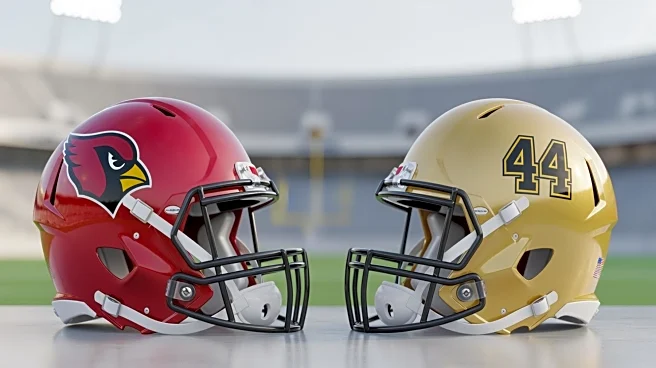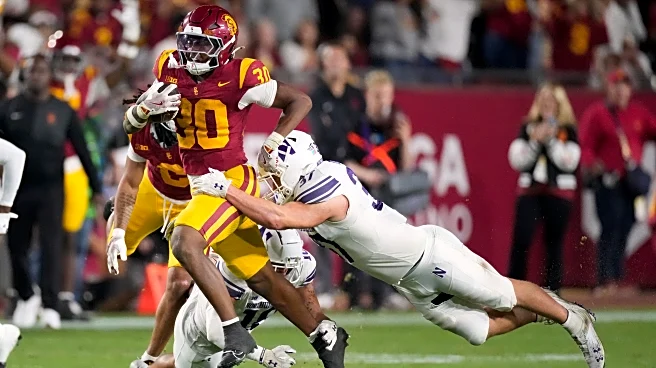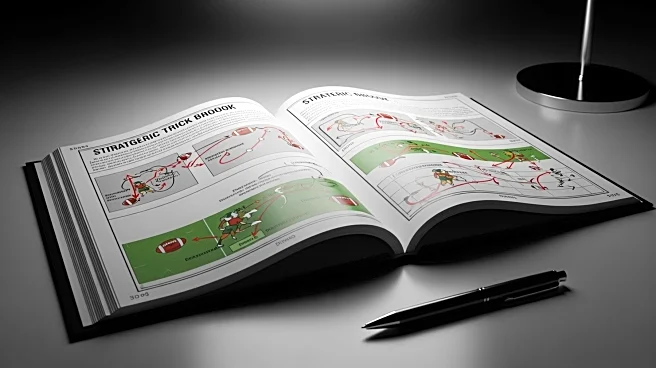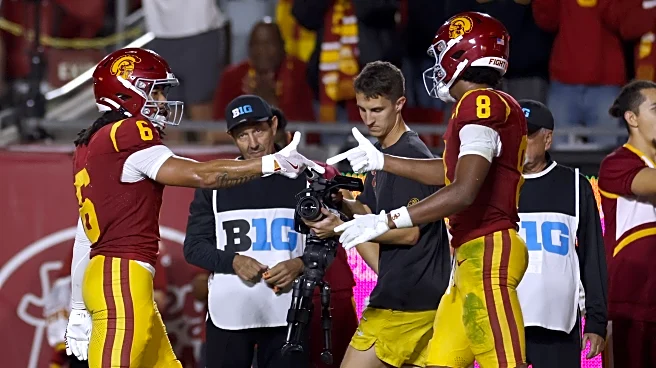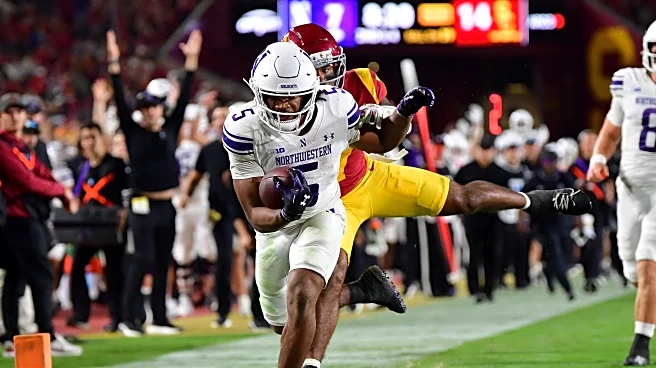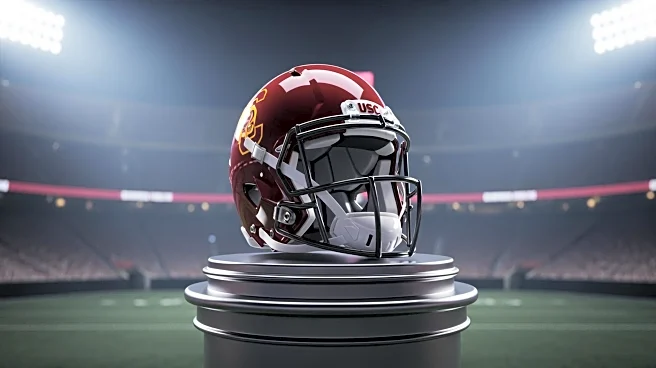What's Happening?
The University of Southern California (USC) football team successfully executed a fake punt during their game against Northwestern, resulting in a 38-17 victory. The play involved third-string quarterback
Sam Huard, who wore the same uniform number as the team's punter, Sam Johnson. Huard, listed as No. 80 for the game, completed a 10-yard pass that extended a drive leading to a touchdown. This strategic move was legal, as Huard's number change was officially submitted and included in the game day roster. Northwestern's coach, David Braun, acknowledged the creativity of USC's coaching staff, led by Lincoln Riley, and noted the importance of thoroughly reviewing game day rosters to avoid similar surprises in the future.
Why It's Important?
This incident highlights the strategic depth and creativity within college football, showcasing how teams can leverage rules to gain competitive advantages. The successful execution of the fake punt reflects the importance of adaptability and attention to detail in sports management. For USC, this play not only contributed to their victory but also demonstrated their coaching staff's innovative approach, potentially influencing future game strategies across college football. The event underscores the need for opposing teams to meticulously analyze game day rosters to anticipate unconventional tactics.
What's Next?
Following this game, other college football teams may consider adopting similar strategies, prompting a closer examination of roster submissions and uniform number assignments. Coaches and teams might increase their focus on pre-game preparations to identify potential trick plays. Additionally, this event could lead to discussions within the NCAA regarding uniform number regulations and transparency in roster changes. USC's victory and strategic play may also bolster their confidence and reputation as they continue their season.
Beyond the Headlines
The use of trick plays like USC's fake punt raises questions about the ethical boundaries of sportsmanship and the balance between strategic innovation and fair play. While legal, such tactics may prompt debates on whether they align with the spirit of the game. This development could influence coaching philosophies, encouraging a culture of creativity while maintaining respect for opponents and the integrity of the sport.
